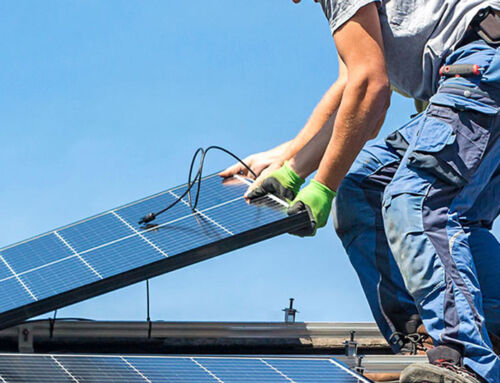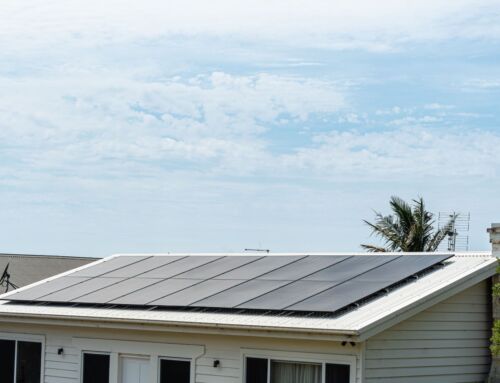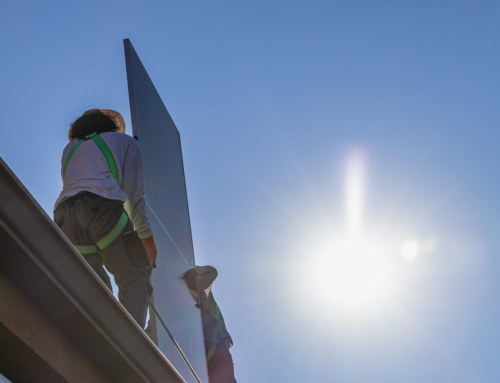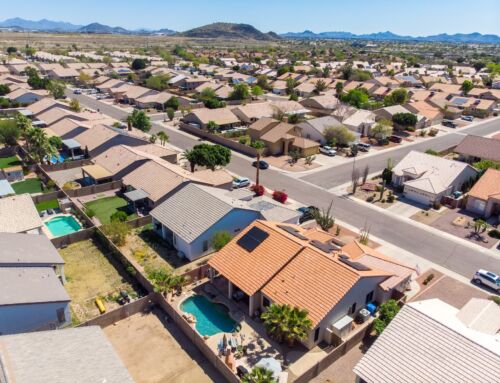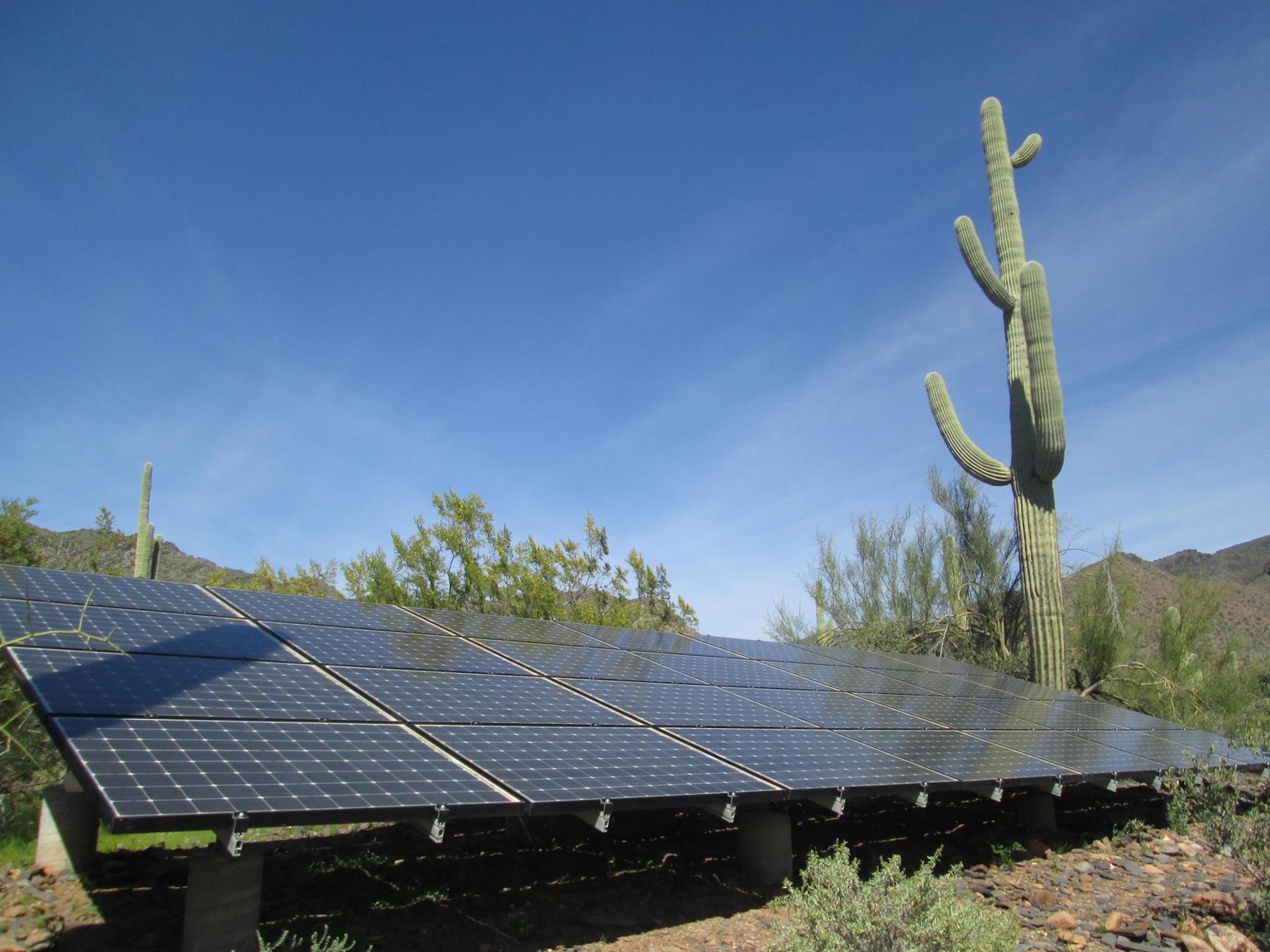
Ground-Mounted Solar Panels: Complete Cost Breakdown
If you have the space, ground-mounted solar panels are an excellent alternative to roof-mounted solar panels. They can be installed almost anywhere on your property and positioned for maximum sunlight access, optimizing your electricity generation.
Ground-mounted solar panels typically cost more than rooftop solar panels, but in some cases, the added cost is worth it, especially with the federal solar tax credit, which saves you 30 percent!
Keep reading for a full cost breakdown of ground-mounted solar panels.
How Much Do Ground-Mounted Solar Panels Cost
As with any solar installation, the cost of solar ground mounts or pole mounts can vary significantly from one project to another. The size of the system (determined by how much electricity you consume and how many solar panels you need to meet your needs), the location, and the solar products you choose will all impact your overall costs.
Typically, residential solar ground-mounts add 10-15% to the cost of the install. Commercial solar ground-mounts are usually larger and therefore more expensive, ranging from $150,000 to $500,000. But these numbers are just averages and your installation may fall outside of that range. For an accurate estimate, it’s best to contact an experienced local solar installer. SouthFace Solar & Electric specializes in ground-mounted solar installations in Arizona and we would be happy to provide a free estimate based on your project’s specifications.
There’s a lot that goes into a ground-mount solar system cost estimate, including system costs, site preparation costs, and maintenance costs.
System Costs
The initial system costs generally include materials, design, and installation labor,
- Solar Products – The core of the solar system includes photovoltaic (PV) panels, inverters, and sometimes batteries for energy storage. The cost varies significantly depending on the type and efficiency of the panels, the capacity of the system (measured in kW), and the technology of the inverters (string inverters or microinverters).
- Mounting Equipment – Ground-mounted systems require sturdy frames and mounting structures to hold the panels at the optimal angle for sunlight exposure. The choice between standard ground mounts, pole mounts, and tracking systems (which adjust the angle of the panels to follow the sun) will affect the cost.
- Installation Labor – The cost of labor can vary widely depending on the complexity of the system and the terrain of the installation site.
Site Preparation Costs
Site preparation is sometimes required for a ground-mounted solar panel installation, and it’s important to factor in these costs when estimating how much it will cost to install ground-mounted solar panels on your property.
- Land Clearing – Before installation, the land may need to be cleared of vegetation, rocks, and other obstacles. The cost will depend on the size of the area to be cleared and the amount of work required.
- Landscaping – Many cities require that solar ground mounts be hidden behind natural vegetation, so landscaping around the install is an added cost imposed by the city.
Maintenance and Operational Costs
Solar panels are surprisingly low maintenance, but they require some upkeep to ensure optimal performance and longevity. Factoring solar maintenance into your ground-mounted solar panel costs will give you a better understanding of your lifetime system costs.
- Routine Maintenance – Ground-mounted solar panel systems require periodic inspections to ensure all components are functioning correctly. This might include checking and tightening bolts and electrical connections, inspecting for physical and weather damage, and ensuring the system is operating efficiently.
- Cleaning – Solar panels require occasional cleaning to remove snow, bird droppings, and other debris that could block sunlight and reduce efficiency. Some owners opt for professional cleaning services, while others do it themselves.
- Repairs – Although solar panels are designed to be durable, they can be damaged by severe weather, animals, or unforeseen accidents. The costs for repairs can vary widely depending on the extent of the damage and the parts that need to be replaced.
Incentives for Ground-Mounted Solar Panels
Residential and commercial solar energy systems are eligible for incentives that can significantly reduce upfront costs. Ground-mounted solar systems qualify for the solar tax credit, a tax incentive that reduces your federal income tax liability by 30% of your total solar installation costs. All types of solar energy systems, including solar ground-mounts, are eligible for the tax credit.
Arizona’s Ground-Mounted Solar Specialists: SouthFace Solar & Electric
While they are an investment, ground-mounted solar panels are the best option for many homes and businesses with a lot of land and/or high electricity consumption. SouthFace Solar & Electric specializes in custom solar energy solutions, including ground-mounts and pole-mounts, in Arizona. We can design a custom system tailored to your specific needs to maximize output and ensure the highest return on your investment. Get started today with a free, custom estimate for your project.

